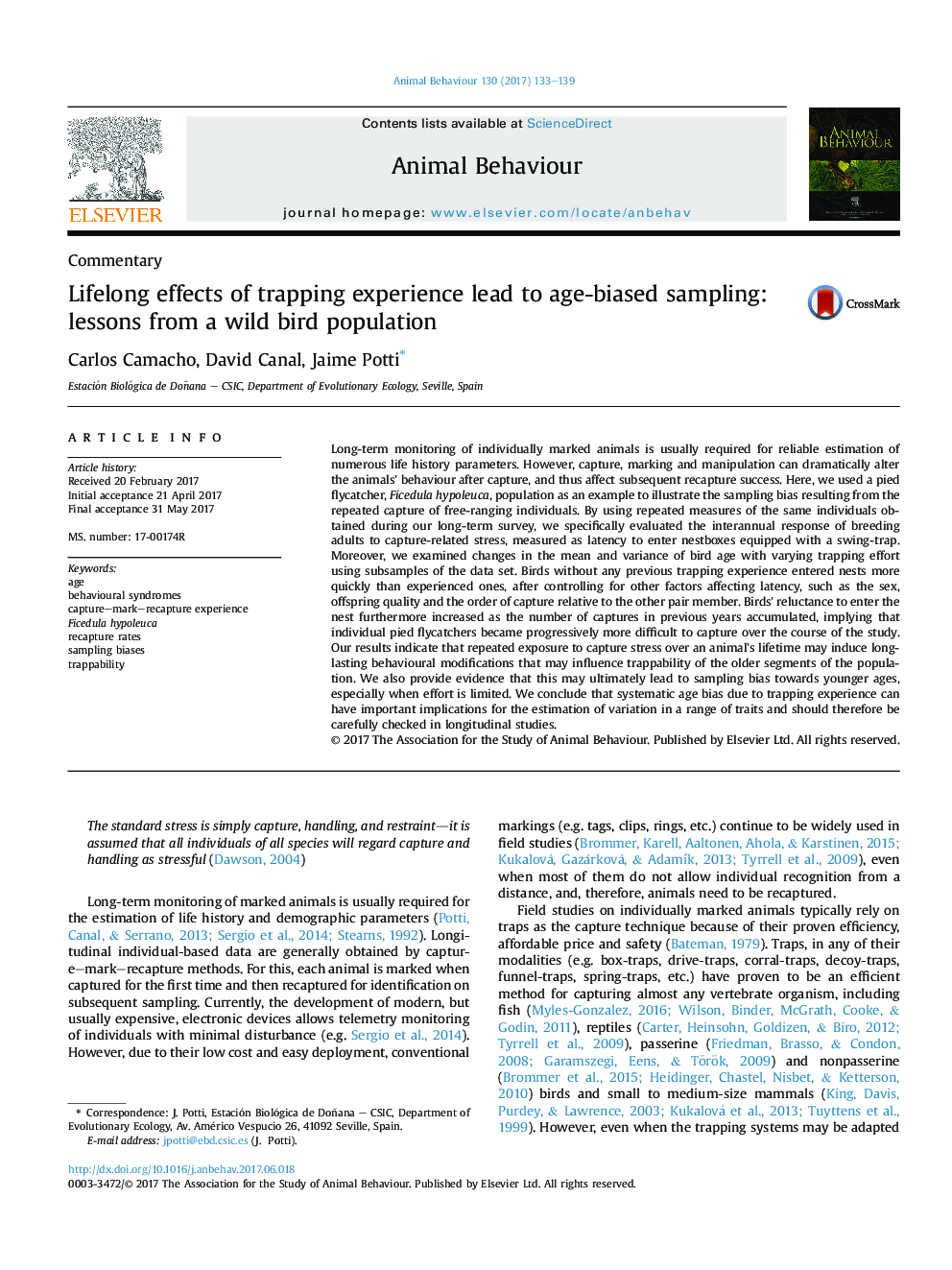| کد مقاله | کد نشریه | سال انتشار | مقاله انگلیسی | نسخه تمام متن |
|---|---|---|---|---|
| 5538423 | 1552198 | 2017 | 7 صفحه PDF | دانلود رایگان |
عنوان انگلیسی مقاله ISI
Lifelong effects of trapping experience lead to age-biased sampling: lessons from a wild bird population
ترجمه فارسی عنوان
اثرات طول عمر تجربه دامداری منجر به نمونه گیری بی روحی با سن می شود: درس های جمعیت پرندگان وحشی
دانلود مقاله + سفارش ترجمه
دانلود مقاله ISI انگلیسی
رایگان برای ایرانیان
موضوعات مرتبط
علوم زیستی و بیوفناوری
علوم کشاورزی و بیولوژیک
علوم دامی و جانورشناسی
چکیده انگلیسی
Long-term monitoring of individually marked animals is usually required for reliable estimation of numerous life history parameters. However, capture, marking and manipulation can dramatically alter the animals' behaviour after capture, and thus affect subsequent recapture success. Here, we used a pied flycatcher, Ficedula hypoleuca, population as an example to illustrate the sampling bias resulting from the repeated capture of free-ranging individuals. By using repeated measures of the same individuals obtained during our long-term survey, we specifically evaluated the interannual response of breeding adults to capture-related stress, measured as latency to enter nestboxes equipped with a swing-trap. Moreover, we examined changes in the mean and variance of bird age with varying trapping effort using subsamples of the data set. Birds without any previous trapping experience entered nests more quickly than experienced ones, after controlling for other factors affecting latency, such as the sex, offspring quality and the order of capture relative to the other pair member. Birds' reluctance to enter the nest furthermore increased as the number of captures in previous years accumulated, implying that individual pied flycatchers became progressively more difficult to capture over the course of the study. Our results indicate that repeated exposure to capture stress over an animal's lifetime may induce long-lasting behavioural modifications that may influence trappability of the older segments of the population. We also provide evidence that this may ultimately lead to sampling bias towards younger ages, especially when effort is limited. We conclude that systematic age bias due to trapping experience can have important implications for the estimation of variation in a range of traits and should therefore be carefully checked in longitudinal studies.
ناشر
Database: Elsevier - ScienceDirect (ساینس دایرکت)
Journal: Animal Behaviour - Volume 130, August 2017, Pages 133-139
Journal: Animal Behaviour - Volume 130, August 2017, Pages 133-139
نویسندگان
Carlos Camacho, David Canal, Jaime Potti,
